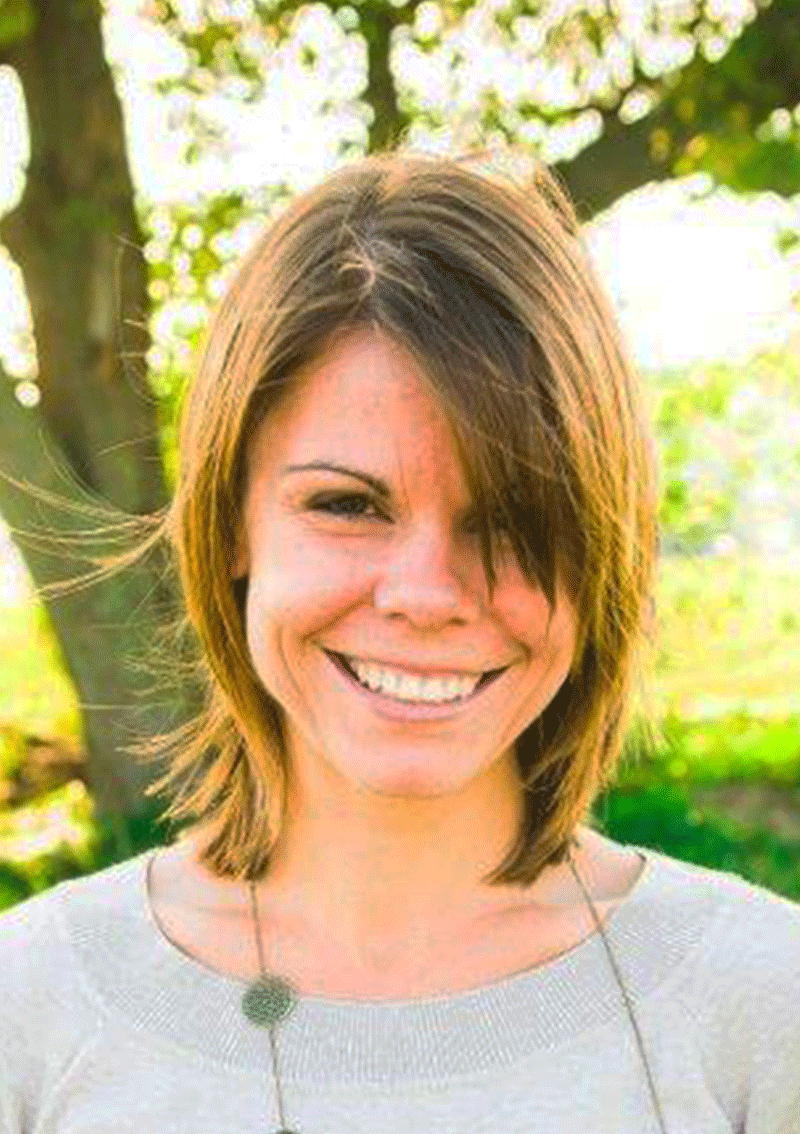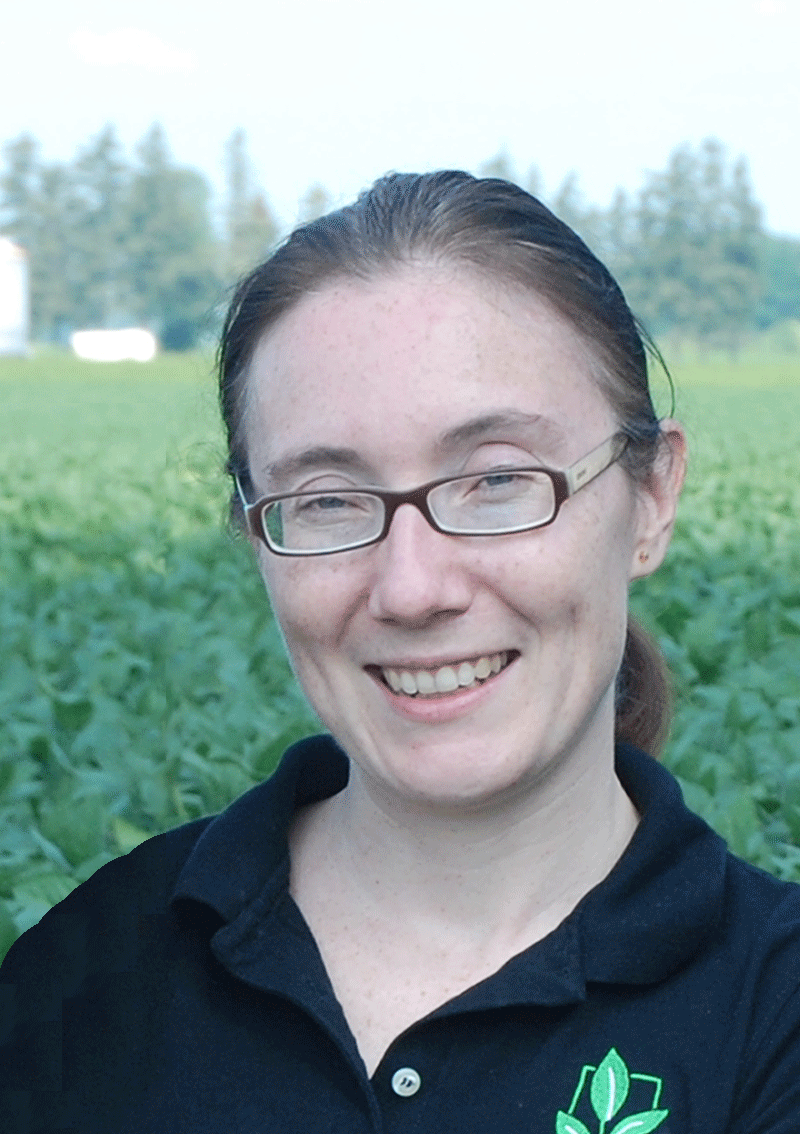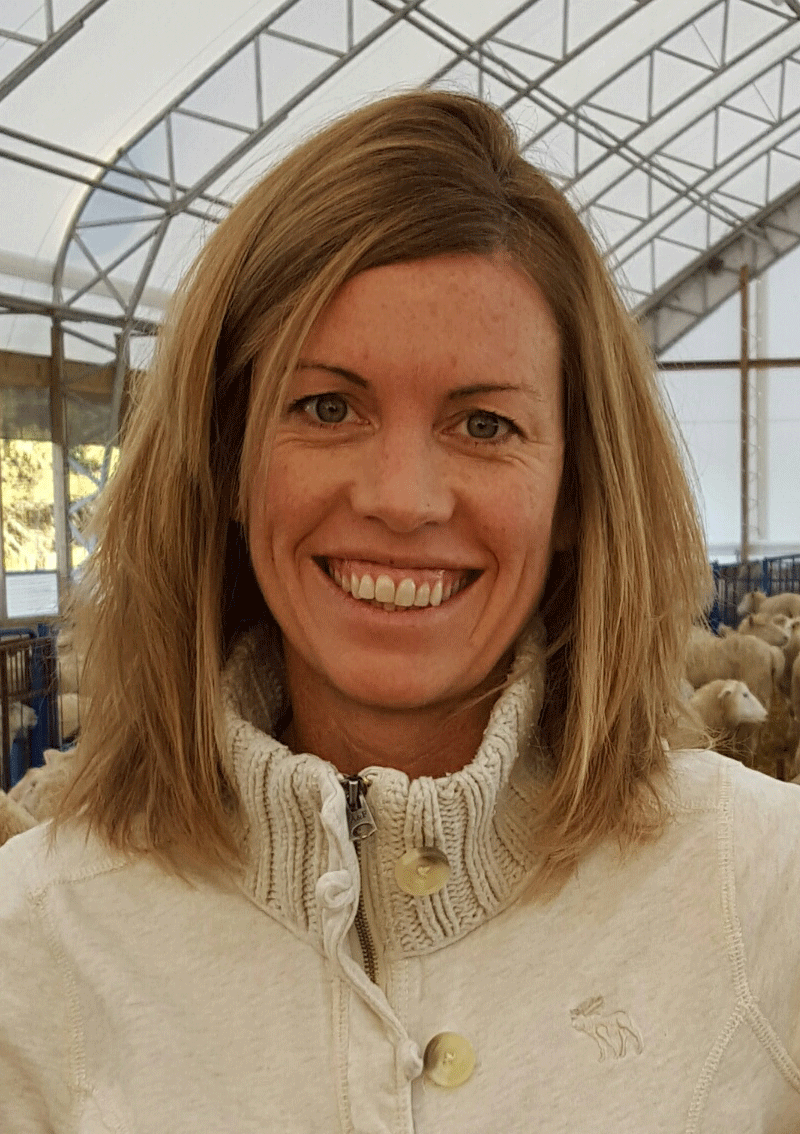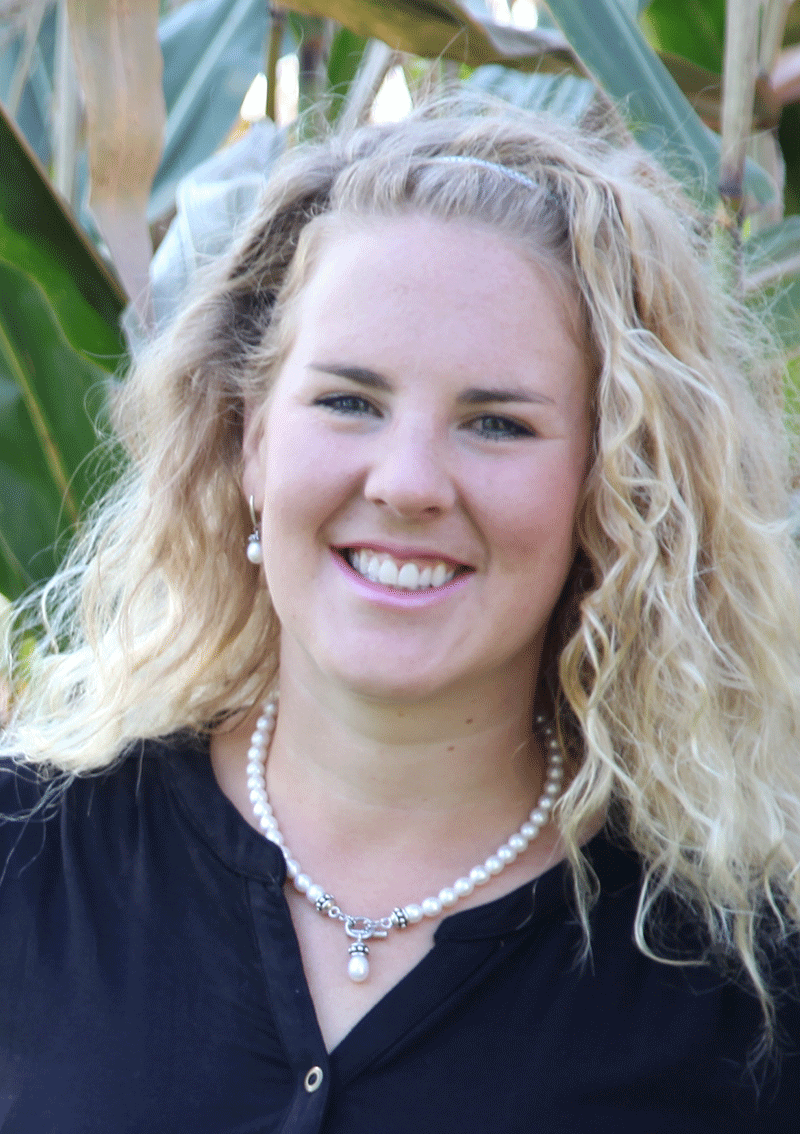Women in agriculture
LEADERSHIP ON THE FARM
IF YOU ATTEND virtually any meeting of any agriculture group, or any conference aimed at primary producers, there is one guarantee — there are a lot of men in the room. It’s no secret that nearly three-quarters of Ontario’s farmer population is male, but even with women making up just over 25% of farmers, they are sorely under represented, particularly in leadership roles.
However little female representation there may be within the majority of agriculture groups, there are many successful and business-savvy women working in the industry. Grain Farmers of Ontario is proud to have these women working on grain farms in the province demonstrating their leadership abilities, and Ontario Grain Farmer magazine asked them to discuss their own challenges and opportunities that come with being a woman working in agriculture.
 LINDSAY MENICH
LINDSAY MENICH
Until about six years ago, I really didn’t see myself as returning to the farm; my educational background is structural engineering, and my now-husband and I were working in Toronto in our respective fields. For a variety of reasons, we decided to leave our jobs in Toronto to try to work with my mother and father in each of their agribusiness operations. Fast forward five years and we are now working at my father’s tobacco, ginseng, and cash crop farm as well as my mother’s elevator and family cash crop farm in Burgessville (District 7 – Waterloo, Oxford). I am also a delegate for Grain Farmers of Ontario.
Although I grew up surrounded by farming, it was not something I saw myself doing. There are challenges associated with learning a lot very quickly, but they have not been insurmountable and having fresh eyes can be an asset. I have no problem asking neighbours and elevator customers their opinions on various farming questions, nor telling them the difficulties I am facing. I don’t feel like I need to know everything and I think that allows me to be open to new ideas.
I also feel very blessed to come from a family where women in leadership roles are an accepted norm. We have a wealth of people in our family to talk to about farming methodology when we are looking for advice and guidance.
I do think that women in grain farming have important things to bring to the table in a generally male dominated field. Women are capable of doing any part of the farming operation, but I think an aspect of farming where they might bring a unique perspective and set of tools is grain marketing. We hear so often that marketing is the most dreaded part of farming and I think women involved in these operations would be inclined to develop a strategic marketing plan and follow it. It is an important task, which requires knowledge of the cost-of-production, organization, and continual attention.
Farmers are anxious to evolve and stay relevant. The public has never been so interested, yet so uninvolved in the production of their food. I feel being a young, female farmer is an asset in terms of being an advocate on behalf of modern agricultural practices. The image of farming must change if we want to be considered the intelligent, business minded, environmental stewards we are. Farmers are typically well educated, heavily invested in the science and business of farming, and run very valuable enterprises. I feel this is the image we need to convey to the public and I am thrilled to be part of it.
 VALERIE HOBBS
VALERIE HOBBS
I farm with my mom at Blythe Brae Farms near Woodstock, ON (District 7 — Waterloo, Oxford). We also have a licensed grain elevator and grain roasting business. I have an honours bachelor of science from the University of Waterloo (Science and Business Program). I am a graduate of Class 11 of the Advanced Agricultural Leadership Program, am a past director of the Ontario Soybean Growers, and a former delegate for Grain Farmers of Ontario. I am currently a member of the Ontario Farm Products Marketing Commission.
In 2015, I think it feels “not-so-unique” to be a female farmer. I see many women working in all facets of agriculture in my community. In our own farm operation, I have had a lot of excellent female farmers come before me — my mom and both my grandmothers. For women, just like any other individual in business, you need to identify your strengths and find resources to help fill the gaps.
I work with my mom and a team of others. Throughout the year, I take responsibility for marketing our grain while others take the lead in other areas. Technology has changed the nature of farm-work and many farm jobs are less physically demanding than in the past. My spouse, Dale, works off-farm but supports my role at the farm. I am mom to Julia (age 8) and Leonard (age 6).
 SANDI BROCK
SANDI BROCK
My husband Mark and I currently own and operate Shepherd Creek Farms Ltd in Staffa, ON (District 9 — Perth) with the help our two children Jack and Jessica. Our operation consists of 1,500 acres of cash crops and 500 breeding ewes for the production of market lambs.
Growing up, my family ran a dairy farm in Paris, ON, and my sisters and I doubled as my parent’s hired help, assisting with chores, milking, feeding, and fieldwork. I attended the University of Guelph and obtained my degree in Agriculture Business. Following graduation in 1998, I started working with Mark’s dad and brother managing a large broiler breeder operation and assisting Mark with field work. In 2011, we did some succession planning and branched off on our own with Shepherd Creek Farms. Although we work together on the farm, Mark manages the cropping side, and I manage the livestock side of the operation.
I am currently a 4-H leader of the Kirkton Dairy Club, sit as a director of the Perth County Federation of Agriculture, and am secretary of our district’s sheep producer association. Sitting on any agricultural board takes commitment. As a couple, Mark and I remain dedicated to drive our industries forward. The challenge here is for the both of us to commit to industry boards. Time on our farm and with the kids still needs to be a priority, and both of us committing to required levels just doesn’t work.
What I continue to see in our industry is that leadership is predominantly male. However, I don’t feel that women are being excluded. In my case, I have chosen to take more local leadership roles as it fits with the schedule of farm and family more easily. When talking to women who have dedicated their time and efforts to provincial or national boards, they too admit that typically they rely on their spouse to take on more at home in their absence.
I feel agriculture is progressing and technology is making farming more appealing to females. Personally, I can do many tasks on the farm solo thanks to investing in the capital to make jobs physically less strenuous and intimidating. However, I still struggle with the old faithfuls… attaching PTO’s, backing up grain wagons, and waiting for a GPS signal. Not sure if that’s a female thing, or just my own personal nemeses.
 TANYA LEGAULT
TANYA LEGAULT
I farm with my family in Moose Creek, ON (District 14 -Prescott, Russell, Stormont, Dundas, Glengarry). Our operation consists of 2,700 acres of cash crops, an elevator for our own crops, and a DEKALB seed dealership. Right now, my father is still the overall manager of the farm, but he is taking a step back so I can take over along with my sister and her husband. My mother does a lot of the paperwork for the farm. I am in charge of the fields, including fertilizer plans, cropping systems, selecting chemicals to use, and determining cost per acre. Currently, I am also handling seed sales. I am a delegate for my district for Grain Farmers of Ontario, a director for my local soil and crop association, and I volunteered for the International Plowing Match this year.
I became a delegate because I wanted to be more involved in the grain side of my farm, and be up to date with what’s going on in the industry. I am in my first year of being a delegate, so I am on a steep learning curve, but it’s a friendly, non-competitive atmosphere and I’ve had good interactions with other farmers.
INCREASING SUPPORT
Several programs have emerged to address the challenges and provide support for women working in agriculture. The Advancing Women conference, now wrapping up its second year, has been met with great interest. At the first eastern conference, held in Toronto in early October, 460 attendees from across the country listened to an excellent lineup of speakers, most of whom were women successfully working in executive roles in the agriculture industry, speaking about their own challenges and opportunities. Emphasis was put on the importance of building a solid, supportive network of fellow women working in a male-dominated industry.
“After attending the Advancing Women conference, I see there is a strong female voice for agriculture and I feel we will see more women gain confidence and fill more of these leadership roles,” says Brock. “It will take mentorship and support from the women who have successfully paved the way for us but I believe we are up for the challenge.”
Also working to address some of the challenges women face in the agriculture industry is the Canadian Agricultural Human Resource Council (CAHRC). Working with key stakeholders within the agriculture industry to identify barriers women face in the industry, the CAHRC’s new project, Supporting the Advancement of Women in Agriculture, will “develop and implement a strategic program to support improved access to leadership opportunities and strengthen business success for women working in agriculture.”
Grain Farmers of Ontario is also taking on a role to increase female participation in the organization. This winter, women from across the province will participate in a focus group to help the organization understand the barriers they face as a female grain farmer. In 2016, Grain Farmers of Ontario will be hosting a leadership program specifically for women working in agriculture for learning, networking, and sharing experiences. More information on the upcoming program will be posted at www.gfo.ca as it becomes available. •























